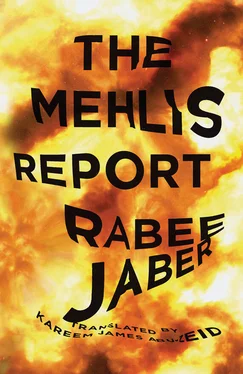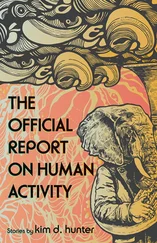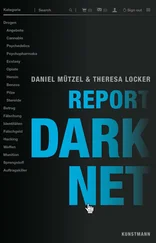After his talk with Mary, Saman speaks with his brother-in-law Hana. The colored light is stretching across the ceiling now, and has reached one of its corners. It dances and flickers, rises and falls like water. He’s been watching this colored light flicker on that ceiling his whole life. Parts of the ceiling have perforations in it — engravings in stone, not molded forms of plaster.
Hana says he saw Samir Kassir on TV, burning in his car, his hand on the steering wheel and his head on his hand. He says he saw the Abd al-Wahab intersection too, and the sycamores by the bend in the road, and the supermarket, and the wall of the Zahrat al-Ihsan School, and the school itself. His voice becomes more animated as he talks. He says he saw the shops, each and every one of them, and knew them all: Beirut hasn’t changed. It’s as if he hadn’t left the city years ago, as if he’d only been gone a couple of days.
Saman Yarid listens to the words that come from America, words that manage, somehow, not to disappear over the Atlantic. He listens as his fingers grow tired from holding the phone, and as his ear starts to ache against the receiver. He listens, and listens, and listens some more. It will be a long day.
It’s a day of phone calls. After Mary’s marathon call, he heads into the streets of Achrafieh, making his way toward downtown. He crosses streets tracking patches of shade. It’s true that September 21st is behind us now and that autumn has — in theory — begun, yet the sun still fills Beirut with flame. He’d rather not sweat on the way to work. It usually takes him twenty minutes to get from his house to the office, but today he covers the distance in half an hour. He takes his time. If his armpits start sweating, he’ll be in a sour mood all day. And then there’s the fact that he really likes his shirts. He rarely buys a shirt from a store. He has almost all of them handmade at the tailor’s. He used to have them made at “Saad and Tashman,” and now he has them made at “Iskandar” in the Furn al-Chebbak district. For a moment he thinks about taking a taxi. Then he remembers he doesn’t do that sort of thing. The worst part of the way to work is the empty white plaza in front of the ruins of the City Palace Cinema. The sun blasts that entire space. It’s as if someone has poured boiling water over all the stones: there are no trees in that plaza, and no buildings. But he can still remember the labyrinthine market that was there before the war.
He emerges from the cool shade beneath the Fuad Shihab Bridge and into the fire of the vast white plaza. He usually walks under the cover of the restored Summer Village houses. (You can hear the rippling water among the trees of Molasses Park. But it’s a very small park. It practically fits inside your pocket. It’s not really a park — it just looks like one.) But today he’s late for work, so he crosses the plaza and takes Umm Jilas Street. Then he passes through the Lazariyyah Complex, with its matching yellow buildings and paved red courtyard. He recalls what these buildings were like before the war, how loud they used to be, all the faces there, and all the stuff for sale. There used to be book and fabric stalls in the courtyard. On either side there were restaurants selling falafel, fried eggplant, and shawarma. And there was a manakish bakery in the corner — that space is empty now. His father used to say they made the best manakish sandwiches in all Beirut. If you ate the chard ones there just once you’d never eat them anywhere else again. And it was the only bakery that wrote “chard” on the wrapper. Everyone always writes “spinach” even though they’re actually made with chard — they’re only very rarely made with spinach. This isn’t a country for spinach.
Anyone who makes it to the top of Maarad Street is out of breath by the end of it. From here the road, covered in shade, gently levels off. Perhaps all the alcohol in his body is making him feel even hotter. He’s been drinking each of the past few nights. And he’s also been drinking with his midday or afternoon meal. He drank more than he should have yesterday on Monot Street. And he danced while he was drinking, which made the alcohol course through his blood. He needs to be careful. He’s not a young man anymore. And then there are all the calories in the alcohol. He hates gaining weight. He’s all right as long as he stays under 170 pounds. But his feet start sinking into the pavement if he passes that limit, as if he’s trudging through a swamp. Alcohol puts you in a bad mood as well. It has the opposite effect at first. But afterward — after you’ve finished a long night of drinking — the sunlight starts stabbing your eyes and your head pounds with dark music. No, not music. His eyes are always bloodshot by then, and his brain turns to spaghetti. He doesn’t understand a thing. And if the phone rings his hand strikes out like a snake and he bangs his elbow on the desk. Goddamn whiskey. And goddamn wine. And the arrack and vodka. He has to be careful. The night of the Geitawi explosion — the night of Friday, September 16th — there was a full moon in the middle of the sky. Even though the clouds and smog usually block out the moon (except on very rare occasions), that night he could see it. He saw it before the explosion. And he saw it after. The blast went off at the stroke of midnight, just before the chiming of the old clock in the parlor. That clock’s unreliable in any case. True, the motion of the pendulum swinging behind the tall glass is still quite steady, and the clock hasn’t once been taken away for repairs over the past sixty years. But that doesn’t mean it’s reliable. Sometimes it runs a few minutes slow. Sometimes a few minutes fast. It tipped over in the earthquake at the end of the fifties — his grandmother told him that.
It tipped over against the wine-red armoire made of walnut wood. It came to rest on the armoire and didn’t fall, didn’t shatter. It was a heavy clock: it had been carried to the house from the port of Beirut in a wooden box that looked like a coffin. The porters said it was heavier than a coffin. How could it not be heavier when it was taller than a man and filled with wood, silver, iron, and copper? The earthquake tipped it over, but it didn’t fall. After the earthquake, they brought in an Armenian expert to fix it. During the shelling of Achrafieh in 1978, it started running slow. But it never broke down during the Two-Year War, even though no small number of shells fell onto the neighborhood. During the second half of the eighties, it started running fast. It got worse day by day. His grandmother depended on it to let her know when to prepare the meals, and when to get out of bed, but the clock went haywire: it would chime only once at five o’clock, for example, or five times at midnight. So she would get out of bed, thinking the rooster would crow soon and the city would shortly be waking up from its slumber. But what did she find? The middle of the night.
In 1990, a man from the Burj Hammoud district came to fix it. He wasn’t Armenian himself, but he had learned how to fix clocks from an Armenian. That was a rarity in Beirut. The Armenians usually only passed on their trades within the family. And in extreme cases, such as the absence of children, they passed them on within the community. But an Armenian teaching his trade to a non-Armenian — that had only ever happened a few times. The man who repaired the old clock in the Yarid household on Ghandour al-Saad Street was one of these rare cases. And he did repair it. After that, it only ever ran slow if it went a long time without being wound. The man said the best way to take care of it was to wind the clock once a week. And when no one else was left to do the winding, Saman Yarid inherited the task. The man went back to Burj Hammoud and the clock worked just like any other. Until the end of the nineties. The weak earthquakes between 1995 and 1997 didn’t break it, but in 1999 it started running slow again. And occasionally it ran fast. And sometimes the pendulum could be heard scraping against the light joint at the top. And sometimes you could hear a spring squeaking. But it never stopped working. It was oiled every year. And whenever its glass was dirty, it was polished. And whenever it chimed and the metallic echoes (that sweet ringing sound) reverberated through the halls of the house, from one corridor to the next, beneath the high ceilings, among the framed pictures on the walls, those silent old pictures, looking out at you without really looking. whenever those metallic chimes resounded in the vast empty house, Saman Yarid felt that things hadn’t changed, and that they never would. Wherever he was in the house at that moment, he would suddenly relax: on the English rocking chair or on the sofa. Peace would fill his body.
Читать дальше












